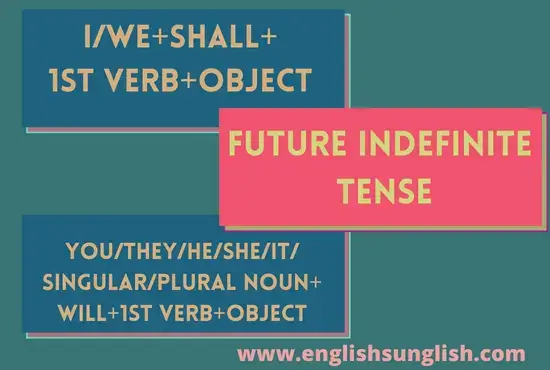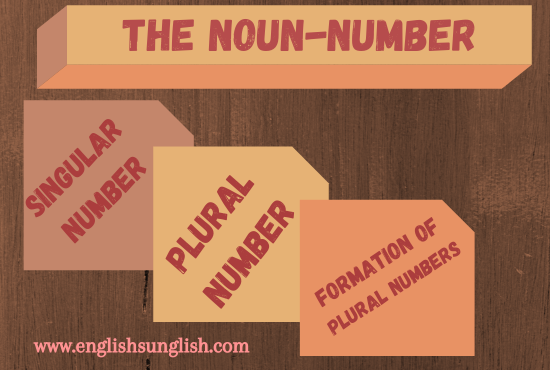Noun| Definition, Types, Examples
Definition of Noun
A noun is a word that is used as the name of a person, place, or thing. For example:
- John is sleeping in this room.
- London is a metropolitan city.
- This book is very interesting.
- He bought a new television set.
Here, the word “thing” is referred to
- a thing about which we can think of,
- all the things that can be seen, heard, tasted, smelt, or touched
So, things may be a materialistic thing or maybe some idea, state, or characteristic.
Classification of Nouns
Nouns have two types of classification. One classification can be done based on the particularity of a noun. And other classifications can be done based on the countability of nouns.
Kinds of Nouns on the basis of Particularity
Nouns can be divided into two types based on the particularity of the noun.
1. Proper Noun
A Proper Noun is the name of a particular person, place, or thing, which is not given in common to every person, place, or thing of the same class. The word “Proper” means “one’s own”. That is why, the Proper Noun is always the name of some specific person, place, or thing. For example,
- Quaid-e-Azam was a lawyer in the profession.
- Shakespeare is a very well-renowned English writer.
- Istanbul is the most beautiful city in the World.
In these examples, Quaid-e-Azam, Shakespeare, and Istanbul present examples of the Proper Nouns, because these are the names of some particular persons and cities.
The rule for Writing Proper Nouns
The following points should be kept in mind while writing the Proper Nouns:
- Proper Nouns always start with a capital letter.
- Adjectives are taken from the proper nouns, which would serve the purpose of common nouns, and also begin with Capital letters.
2. Common Noun
A Common Noun is a noun that is used for every person, place, or thing of the same class. The word “Common” means “shared by all”. So, this is the reason, why Common Nouns are names of persons, places, or things of the same class or kind. For example,
- Quaid-e-Azam was a lawyer in the profession.
- Shakespeare is a very well-renowned English writer.
- Istanbul is the most beautiful city in the World.
In these examples, lawyers, English writers, and cities present examples of Common Nouns, because these are the names that are common for every person, place, or thing of the same class or kind.
Abstract, Collective, and Proper Nouns are sometimes used as Common Nouns. This happens when the Proper Name of a person, place, or thing is used to refer to some other person, place, or thing, having the same characteristics. For example:
Proper Nouns as Common Nouns
Proper Nouns are sometimes used as Common Nouns as follows:
- He was the Lukman (the wisest man) of his age.
- Kalidas is often called the Shakespeare (the greatest dramatist) of India.
Abstract Nouns as Common Nouns
Abstract Nouns are sometimes used as Common Nouns as follows:
- Beauty is a nine-day’s wonder.
- This building is made of brick and stone.
Collective Nouns as Common Nouns
Collective Nouns are sometimes used as Common Nouns as follows:
- Imran Khan was the captain of our team.
Kinds of Nouns on the bases of Countability
The Nouns can also be classified based on their countability of nouns. Because some nouns have the ability not to be counted in numbers.
1. Countable Nouns
Countable nouns are the names of objects, people, etc. that can be counted in numbers. These nouns can also be called “countable”. For example:
- Book
- Pen
- Apple
- Boy
- Sister
- Doctor
- Horse
Countable Nouns always have the plural form, e.g; books, pens, apples, boys, sisters, doctors and horses, etc.
2. Uncountable Nouns
Uncountable nouns are the names of things that cannot be counted in numbers. These nouns can also be called “uncountables”. Uncountable Nouns are basically denoted substances and abstract things.
- Milk
- Oil
- Petrol
- Gold
- Honesty
- Wisdom
- Sugar
- Salt
Uncountable Nouns do not have the plural form. For example, we cannot say milks, but we can say two glasses of milk. Articles “a/an” cannot be used with Uncountable Nouns. Similarly, numerals like one, two, three, etc., cannot be used with Uncountable Nouns.


